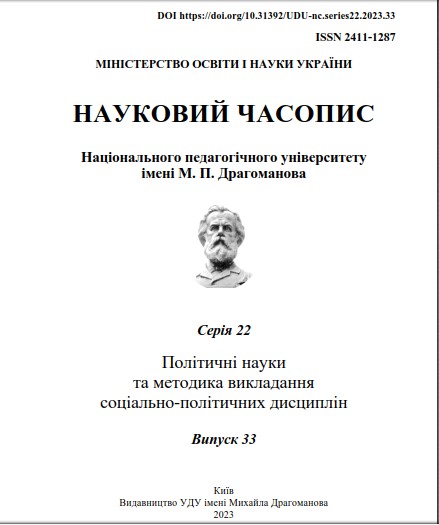Organizational and Legal Analysis of Information Security as a Factor of Socio-Political Stability
DOI:
https://doi.org/10.31392/UDU-nc.series22.2023.33.08Abstract
The article analyzes the organizational and legal aspects of ensuring information security in the context of the development of the information society, various theoretical approaches to defining the concepts of information and national security, their interconnection, and political and legal mechanisms for ensuring them on the way to the development of socio-political stability. The relevance of the study is due to the fact that the rivalry between states is now taking place on the information front, which is becoming a fundamentally new field of struggle. The creation and development of the global information space has led to an increase in cyber threats in all spheres of public life, including politics and economics.
The author discusses the issue of international cooperation in ensuring information security within the United Nations (UN) and the European Union (EU), and points out the scale of global information challenges and the impossibility of individual states to solve these problems on their own. The author analyzes the key legal acts adopted by the UN General Assembly that contain provisions on threats to international information security. The analysis of recent publications of domestic and foreign experts in the field of information policy, in particular A. Voitsikhovsky, K. Zakharenko, Z. Koval and others, allowed to study the impact of the state's information security on national security.
The scientific novelty is to provide practical recommendations for improving the institutional support and political institutions of information security and countering cyberspace threats. The author emphasizes that the state information policy should respond to the pressing issues that have arisen in the international information sphere. An important task is to develop and implement the basic principles, priorities and tasks of the State information security policy, which requires improvement of institutional, legal and organizational mechanisms for managing the sphere.

